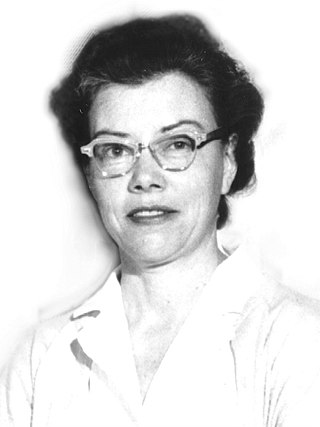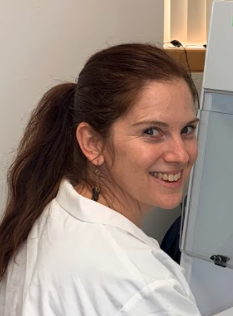
Antimicrobial resistance (AMR) occurs when microbes evolve mechanisms that protect them from the effects of antimicrobials. All classes of microbes can evolve resistance. Fungi evolve antifungal resistance. Viruses evolve antiviral resistance. Protozoa evolve antiprotozoal resistance, and bacteria evolve antibiotic resistance. Bacteria that are considered extensively drug resistant (XDR) or totally drug-resistant (TDR) are sometimes referred to as a superbug. Although antimicrobial resistance is a naturally-occurring process, it is often the result of improper usage of the drugs and management of the infections.

Beta-lactamases, (β-lactamases) are enzymes produced by bacteria that provide multi-resistance to beta-lactam antibiotics such as penicillins, cephalosporins, cephamycins, monobactams and carbapenems (ertapenem), although carbapenems are relatively resistant to beta-lactamase. Beta-lactamase provides antibiotic resistance by breaking the antibiotics' structure. These antibiotics all have a common element in their molecular structure: a four-atom ring known as a beta-lactam (β-lactam) ring. Through hydrolysis, the enzyme lactamase breaks the β-lactam ring open, deactivating the molecule's antibacterial properties.

The American Society for Microbiology (ASM), originally the Society of American Bacteriologists, is a professional organization for scientists who study viruses, bacteria, fungi, algae, and protozoa as well as other aspects of microbiology. It was founded in 1899. The Society publishes a variety of scientific journals, textbooks, and other educational materials related to microbiology and infectious diseases. ASM organizes annual meetings, as well as workshops and professional development opportunities for its members.

Klebsiella pneumoniae is a Gram-negative, non-motile, encapsulated, lactose-fermenting, facultative anaerobic, rod-shaped bacterium. It appears as a mucoid lactose fermenter on MacConkey agar.
Global Infectious Diseases and Epidemiology Online Network (GIDEON) is a web-based program for decision support and informatics in the fields of Infectious Diseases and Geographic Medicine. Due to the advancement of both disease research and digital media, print media can no longer follow the dynamics of outbreaks and epidemics as they emerge in "real time." As of 2005, more than 300 generic infectious diseases occur haphazardly in time and space and are challenged by over 250 drugs and vaccines. 1,500 species of pathogenic bacteria, viruses, parasites and fungi have been described. GIDEON works to combat this by creating a diagnosis through geographical indicators, a map of the status of the disease in history, a detailed list of potential vaccines and treatments, and finally listing all the potential species of the disease or outbreak such as bacterial classifications.

Antibiotic sensitivity testing or antibiotic susceptibility testing is the measurement of the susceptibility of bacteria to antibiotics. It is used because bacteria may have resistance to some antibiotics. Sensitivity testing results can allow a clinician to change the choice of antibiotics from empiric therapy, which is when an antibiotic is selected based on clinical suspicion about the site of an infection and common causative bacteria, to directed therapy, in which the choice of antibiotic is based on knowledge of the organism and its sensitivities.

Enterobacter cloacae is a clinically significant Gram-negative, facultatively-anaerobic, rod-shaped bacterium.

Beta-lactamases are a family of enzymes involved in bacterial resistance to beta-lactam antibiotics. In bacterial resistance to beta-lactam antibiotics, the bacteria have beta-lactamase which degrade the beta-lactam rings, rendering the antibiotic ineffective. However, with beta-lactamase inhibitors, these enzymes on the bacteria are inhibited, thus allowing the antibiotic to take effect. Strategies for combating this form of resistance have included the development of new beta-lactam antibiotics that are more resistant to cleavage and the development of the class of enzyme inhibitors called beta-lactamase inhibitors. Although β-lactamase inhibitors have little antibiotic activity of their own, they prevent bacterial degradation of beta-lactam antibiotics and thus extend the range of bacteria the drugs are effective against.

Solithromycin is a ketolide antibiotic undergoing clinical development for the treatment of community-acquired pneumonia and other infections.

Ceftolozane/tazobactam, sold under the brand name Zerbaxa, is a combination antibiotic medication used for the treatment of complicated urinary tract infections and complicated intra-abdominal infections in adults. Ceftolozane is a cephalosporin antibiotic, developed for the treatment of infections with gram-negative bacteria that are resistant to conventional antibiotics. It was studied for urinary tract infections, intra-abdominal infections and ventilator-associated bacterial pneumonia.

Elizabeth Osborne King was an American microbiologist who discovered and described bacteria of medical importance at the United States Centers for Disease Control and Prevention from the late 1940s through the early 1960s. A 1984 CDC manual dedication referred to King as "internationally known as an authority on a variety of unusual bacteria." The genera Kingella and Elizabethkingia and several species of bacteria are named to honor her for her pioneering work. King died of cancer on April 8, 1966, in Atlanta, where she is interred in Oakland Cemetery.
Sherwood Leslie Gorbach is an Emeritus Professor at Tufts University School of Medicine. He was editor-in-chief of the journal Clinical Infectious Diseases from 2000 to 2016.
Folasade Tolulope Ogunsola is a Nigerian professor of medical microbiology, and the Vice-Chancellor of the University of Lagos. She specializes in disease control, particularly HIV/AIDS. Ogunsola was provost of College of Medicine, University of Lagos and is reputed as being the first woman to occupy the position. She was also the Deputy Vice Chancellor of the institution between 2017 and 2021. She was acting vice chancellor of the University of Lagos for a short period in 2020 when the University was plunged into crisis as a result of the removal of the Vice Chancellor by the University Council.

Karen Bush is an American biochemist. She is a Professor of Practice in Biology at Indiana University and the interim director of the Biotechnology program. Bush conducts research focusing on bacterial resistance mechanisms to beta-lactam antibiotics.
Allison Joan McGeer is a Canadian infectious disease specialist in the Sinai Health System, and a professor in the Department of Laboratory Medicine and Pathobiology at the University of Toronto. She also appointed at the Dalla Lana School of Public Health and a Senior Clinician Scientist at the Lunenfeld-Tanenbaum Research Institute, and is a partner of the National Collaborating Centre for Infectious Diseases. McGeer has led investigations into the severe acute respiratory syndrome outbreak in Toronto and worked alongside Donald Low. During the COVID-19 pandemic, McGeer has studied how SARS-CoV-2 survives in the air and has served on several provincial committees advising aspects of the Government of Ontario's pandemic response.

Robin Patel is a Canadian born microbiologist and was the 2019–2020 President of the American Society for Microbiology (ASM). She is the Elizabeth P. and Robert E. Allen Professor of Individualized Medicine, a Professor of Microbiology, and a Professor of Medicine at the Mayo Clinic. She is the Vice Chair of Education in the Department of Laboratory Medicine and Pathology at the Mayo Clinic, and Director of the Mayo Clinic's Infectious Diseases Research Laboratory, where she studies biofilms, antimicrobial resistance, periprosthetic joint infection and diagnostic testing of bacteria. She is the Director of the Antibacterial Resistance Leadership Group (ARLG) Laboratory Center of the National institutes of Health.
Karen Joy Shaw is an American microbiologist and discoverer of novel antifungal and antibacterial compounds. She is best known for her work on aminoglycoside resistance in bacteria as well as leading drug discovery research teams. As Senior Vice President of Biology at Trius Therapeutics, Inc. her work was critical to the development of the oxazolidinone antibiotic tedizolid phosphate (Sivextro) as well as the discovery of the TriBE inhibitors, a novel class of DNA gyrase/Topoisomerase IV antibacterial agents that target both Gram-positive and Gram-negative organisms.[2] As Chief Scientific Officer at Amplyx Pharmaceuticals, Shaw was responsible for the preclinical development of the novel antifungal fosmanogepix, a first-in-class broad-spectrum antifungal prodrug that is currently in Phase 2 clinical development for the treatment of invasive fungal infections. She also discovered APX2039, a unique Gwt1 inhibitor that is in preclinical development for the treatment of cryptococcal meningitis.
David R. Murdoch is a New Zealand academic specialising in paediatric infectious diseases, especially pneumonia. He has also worked on Legionnaires' disease and has advised the Oxford University vaccine group and the New Zealand government on COVID-19. Since February 2022, he has been Vice-Chancellor of the University of Otago.

Tania Sorrell is an Australian infectious disease physician who is a Professor and Director of the Marie Bashir Institute for Infectious Diseases and Biosecurity at the University of Sydney. She serves as Chair of the National Health and Medical Research Council Research Translation Faculty Steering Group on New and Emerging Health Threats. She is interested in the diagnosis, prevention and treatment of infectious diseases.

Anne Louise Wyllie is a New Zealand microbiologist who was the lead author of a 2020 research article which led to the development of the SalivaDirect PCR method of testing saliva for SARS-CoV-2, the virus that causes COVID-19. She has also worked on community studies to better understand pneumococcal disease. She is a research scientist in epidemiology with the Public Health Modeling Unit at Yale University.













